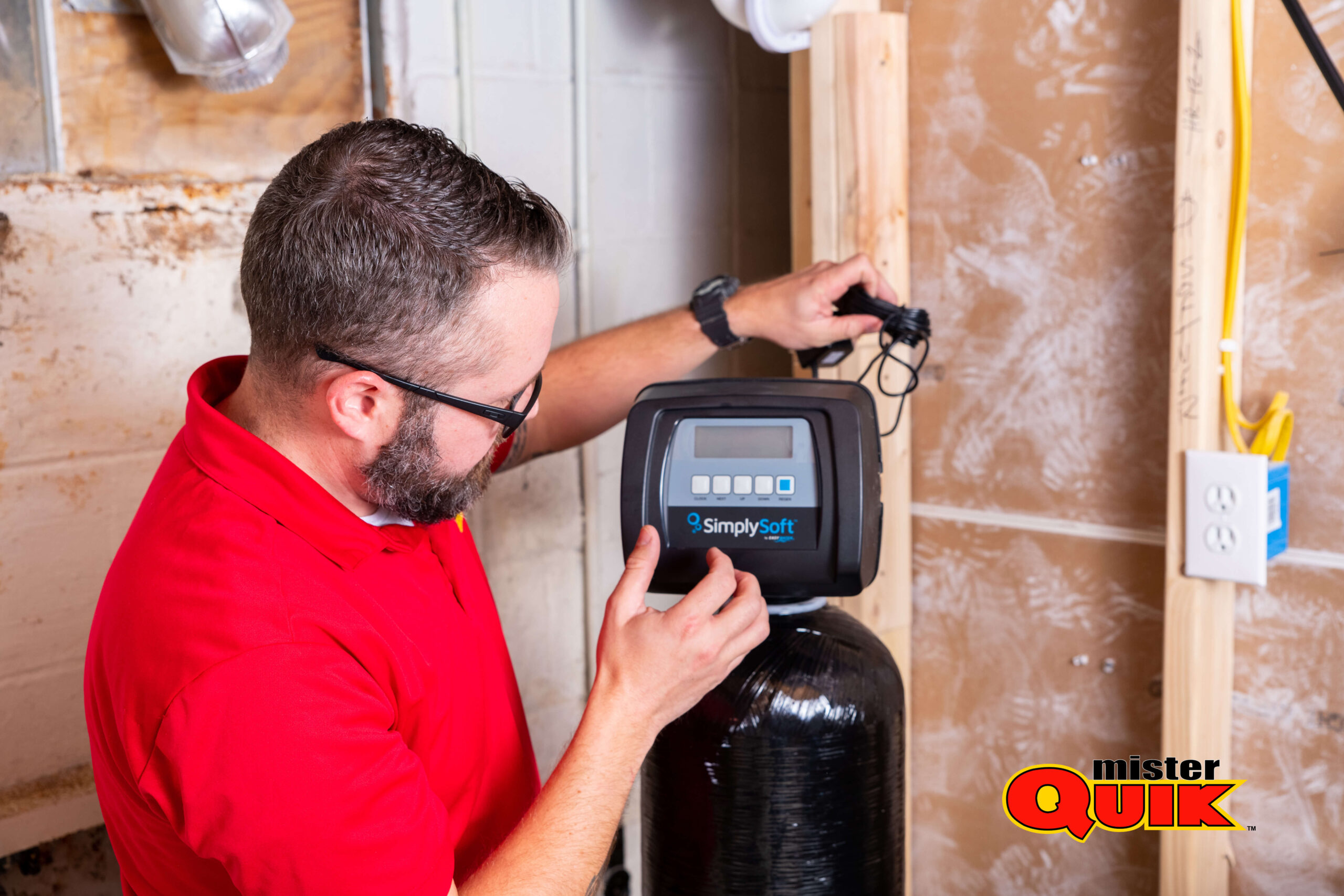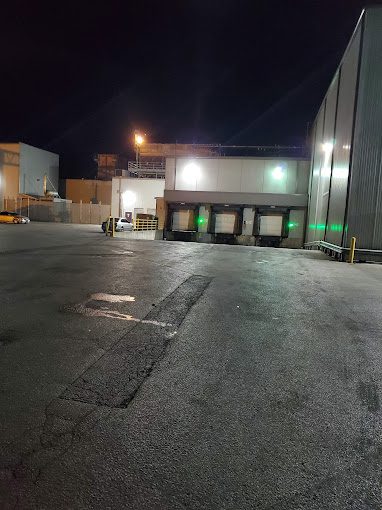Avon- Hard Water

Avon- Hard Water
Are you tired of dealing with the frustrations of hard water in your home? From stubborn stains to scale buildup, hard water can wreak havoc on your plumbing fixtures and appliances. Fortunately, there are solutions available, and they might be closer than you think. Let’s explore the options for hard water treatment systems near you.
Understanding Hard Water:
- Hard water contains high levels of minerals, particularly calcium and magnesium ions.
- These minerals can leave behind residue on surfaces, leading to unsightly stains and reducing the effectiveness of soaps and detergents.
- Over time, hard water can also cause scale buildup in pipes and appliances, diminishing their efficiency and lifespan.
The Importance of Treatment Systems:
- Protect Your Plumbing: Installing a hard water treatment system can help prevent scale buildup in your pipes, reducing the risk of clogs and corrosion.
- Preserve Your Appliances: Hard water can take a toll on your appliances, causing them to work harder and wear out faster. Treatment systems can extend the lifespan of your appliances by reducing mineral buildup.
- Improve Water Quality: Say goodbye to soap scum and hello to cleaner, softer water. Treatment systems remove excess minerals, resulting in water that’s gentler on your skin and hair.
- Save Money: By reducing the strain on your plumbing and appliances, treatment systems can help you save money on repairs and energy bills in the long run.
Mister Quik Home Services, Hard Water:
- Mister Quik specializes in providing effective solutions for hard water problems, including a range of treatment systems tailored to your needs.
- With our expertise, you can find the right treatment system to address your hard water issues and enjoy cleaner, healthier water in your home.
Conclusion: Don’t let hard water continue to cause frustration and damage in your home. Explore the options for hard water treatment systems near you and take control of your water quality today. With the right solution, you can protect your plumbing, preserve your appliances, and enjoy the benefits of cleaner, softer water for years to come.
Hard water levels in my area
Perhaps you are curious about the quality of water in your area. Hard water levels can vary from one location to another, impacting your daily life in various ways. Let’s explore what hard water is and how you can determine its prevalence in your neighborhood.
Hard water contains high levels of minerals, such as calcium and magnesium, which can leave behind residue on surfaces. These minerals can lead to issues like soap scum, scale buildup, and reduced effectiveness of cleaning products. The presence of hard water can also affect the performance and longevity of plumbing fixtures and appliances.
Stains on sinks, faucets, and fixtures. Difficulty lathering soap or shampoo. Spots on dishes and glassware after washing. Dry, itchy skin and dull, brittle hair.
Water Quality Test: The most accurate way to determine hard water levels is through a professional water quality test. Mister Quik offers comprehensive water quality testing services, providing insights into the mineral composition of your water. Local Reports: You can also check with local authorities or utility companies for information on water hardness levels in your area.
Household Chores: Hard water can make cleaning tasks more challenging and less effective, leading to frustration and wasted time. Appliance Lifespan: Scale buildup in appliances like water heaters and dishwashers can reduce efficiency and longevity, resulting in costly repairs or replacements. Skin and Hair: The minerals in hard water can strip moisture from your skin and hair, leaving them dry, itchy, and prone to damage.
Water Softeners: Installing a water softening system can help remove excess minerals from your water supply, improving its quality and reducing the negative effects of hard water. Filtration Systems: Filtration systems can also be effective in reducing mineral content and improving overall water quality. Regular Maintenance: Regardless of the solution you choose, regular maintenance is essential to ensure optimal performance and longevity.
Understanding the levels of hard water in your area is crucial for maintaining a healthy and comfortable home environment. Whether through professional testing or local reports, gaining insight into water quality can help you make informed decisions to address hard water issues effectively. Consider reaching out to Avon for a comprehensive water quality test and take proactive steps to improve your water quality today.
Hard water is generally safe to drink and does not pose a health risk to most people. It contains dissolved minerals such as calcium and magnesium, which are essential for health and nutrition. While hard water may have a distinct taste and leave mineral deposits on surfaces, it is not harmful to consume.
Common signs of hard water include soap scum buildup in sinks and bathtubs, spots on dishes and glassware after washing, dry or itchy skin after bathing, and reduced lathering of soaps and shampoos. Additionally, hard water can cause scale buildup in plumbing fixtures and appliances, leading to reduced water flow and efficiency over time.
The lifespan of hard water filters depends on factors such as the type of filter, water usage, and the level of water hardness. Generally, cartridge-style filters used to remove calcium and magnesium ions from hard water need replacement every 3 to 6 months.
Rainwater is naturally soft because it is free from minerals like calcium and magnesium that cause water hardness. As rain falls through the atmosphere, it collects dissolved gasses and particles, but it does not pick up significant amounts of minerals that contribute to water hardness. However, rainwater can become contaminated with pollutants and impurities from the atmosphere as it travels to the ground, so it may require treatment before it is suitable for drinking or other uses.
There are several methods to treat hard water at home, including water softening systems, reverse osmosis filtration, and water conditioning devices. Water softeners are the most common method and use ion exchange to replace calcium and magnesium ions with sodium or potassium ions, resulting in softened water. Reverse osmosis filtration systems remove minerals and other contaminants from water by forcing it through a semipermeable membrane. Water conditioning devices alter the structure of minerals in hard water to reduce scale buildup without removing them entirely.
Hard water versus soft water
Are you curious about the differences between hard water and soft water? Understanding these distinctions is crucial for maintaining a healthy and comfortable home environment. Let’s delve into the characteristics of each and how they can impact your daily life.


- Hard water contains high levels of minerals, primarily calcium and magnesium ions.
- These minerals are picked up as water passes through soil and rock formations, leading to various issues.
- Common signs of hard water include scale buildup on fixtures, soap scum in sinks and showers, and spots on dishes and glassware.
- Soft water, on the other hand, contains low levels of minerals, particularly calcium and magnesium.
- Soft water is gentler on your skin and hair, as it doesn’t leave behind residue like hard water does.
- Soap and detergents lather more effectively in soft water, leading to cleaner dishes, laundry, and surfaces.
- Hard water can make cleaning tasks more challenging and less effective due to the buildup of mineral residue.
- Soft water, on the other hand, makes cleaning easier and more efficient, as soap and detergents can fully dissolve and rinse away.
- Hard water can cause scale buildup in appliances like water heaters, dishwashers, and washing machines, reducing their efficiency and lifespan.
- Soft water helps prolong the lifespan of appliances by preventing scale buildup and reducing the strain on internal components.
- Hard water can leave your skin feeling dry and itchy, and your hair dull and brittle, due to the mineral residue it leaves behind.
- Soft water, on the other hand, is gentler on your skin and hair, leaving them feeling softer and healthier.
- If you’re dealing with the effects of hard water in your home, consider installing a water softening system to improve water quality.
- Mister Quik offers a range of solutions for hard water issues, including water softeners tailored to your specific needs.
Conclusion: Understanding the differences between hard water and soft water is essential for maintaining a comfortable and functional home environment. Whether you’re dealing with the challenges of hard water or enjoying the benefits of soft water, there are solutions available to meet your needs. Consider reaching out to Avon for expert advice and solutions to address your hard water issues effectively.
Effects of hard water
Are you experiencing the effects of hard water in your home? Understanding how hard water can impact your daily life is the first step toward finding effective solutions. Let’s explore the various effects of hard water and how they can affect your household.







Hard water contains high levels of minerals like calcium and magnesium, which can accumulate over time and form scale buildup on plumbing fixtures and appliances. This buildup can restrict water flow and reduce the efficiency of your plumbing system, leading to costly repairs and maintenance issues down the line.







The buildup of mineral deposits can lead to clogged pipes, reducing water flow and increasing the risk of plumbing issues such as leaks and bursts. Over time, these clogs can become severe, requiring professional intervention to restore proper water flow and prevent further damage to your plumbing system.







Appliances such as water heaters, dishwashers, and washing machines can become less efficient due to scale buildup caused by hard water. This buildup insulates heating elements and reduces the efficiency of water circulation, resulting in higher energy bills and premature wear and tear on your appliances.



Hard water reacts with soap and detergents to form soap scum, which can coat surfaces in sinks, showers, and bathtubs, making them difficult to clean and leaving behind unsightly residue. This buildup can also harbor bacteria and mold, posing a health risk to you and your family if left untreated.







Hard water can cause stains and discoloration on plumbing fixtures, faucets, and showerheads, detracting from the appearance of your bathroom and kitchen. These stains can be challenging to remove and may require harsh chemical cleaners that can damage the finish of your fixtures over time.







Clothes washed in hard water may appear dull and feel stiff due to the mineral residue left behind during the washing process. This residue can also cause colors to fade faster and fabrics to wear out more quickly, leading to a shorter lifespan for your clothing and linens.







Hard water can strip moisture from your skin and hair, leaving them dry, itchy, and prone to irritation. This can lead to a range of skincare issues, including eczema, acne, and dandruff, as well as hair that looks and feels brittle and lifeless.



If you're experiencing any of these effects of hard water in your home, it's essential to address the issue promptly. Avon offers a range of solutions for hard water problems, including water softeners and filtration systems designed to improve water quality and protect your home and appliances.
How is hard water treated
Are you wondering how to tackle hard water issues in your home? Understanding the treatment methods for hard water is essential for improving water quality and preserving the condition of your plumbing fixtures and appliances. Let’s explore the various techniques used to treat hard water effectively.
1. Water Softeners:
- Water softeners are one of the most common and effective solutions for treating hard water.
- These systems use ion exchange to remove calcium and magnesium ions from the water, replacing them with sodium or potassium ions.
- As a result, the water becomes softer and less likely to cause scale buildup or soap scum.
2. Reverse Osmosis:
- Reverse osmosis systems are another option for treating hard water, particularly in areas with high mineral content.
- These systems use a semi-permeable membrane to filter out impurities, including minerals like calcium and magnesium.
- The result is purified water that is free from hardness minerals and other contaminants.
3. Distillation:
- Distillation involves heating water to create steam, which is then condensed back into liquid form.
- This process removes impurities, including minerals, leaving behind pure, soft water.
- While effective, distillation can be energy-intensive and may not be practical for large-scale use in residential settings.
4. Avon- Hard Water:
- If you’re experiencing the effects of hard water in your home, it’s essential to explore treatment options to improve water quality and protect your plumbing fixtures and appliances.
- Avon offers a range of solutions for hard water problems, including water softeners, reverse osmosis systems, and more. With their expertise, you can find the right treatment method to address your specific hard water issues effectively.
Conclusion:
Understanding how hard water is treated is the first step toward finding the right solution for your home. Whether you opt for a water softener, reverse osmosis system, or another treatment method, taking proactive steps to address hard water issues can improve water quality and extend the lifespan of your plumbing fixtures and appliances. Consider reaching out to Avon for expert advice and solutions tailored to your specific hard water needs.
Hard water filters
Are you searching for a solution to combat hard water issues in your home? Hard water filters offer a practical and effective way to improve water quality and reduce the impact of mineral deposits on your plumbing fixtures and appliances. Let’s explore how these filters work and why they’re a popular choice for homeowners dealing with hard water problems.
Hard water filters utilize various mechanisms to remove minerals such as calcium and magnesium from your water supply. These filters typically contain a media bed, such as activated carbon or resin beads, that attracts and traps hardness minerals as water passes through. As a result, the water that emerges from the filter is softer and less likely to cause scale buildup or other issues associated with hard water.
Activated Carbon Filters: Activated carbon filters are effective at removing chlorine, sediment, and certain organic compounds from water. While they can improve water taste and odor, they are not specifically designed to remove hardness minerals. However, some activated carbon filters may include additional media to address hard water issues.
Ion exchange resin filters, also known as water softeners, are specifically designed to remove hardness minerals from water. These filters use resin beads that attract and exchange calcium and magnesium ions for sodium or potassium ions, effectively softening the water. Ion exchange resin filters are highly effective at preventing scale buildup and reducing the negative effects of hard water on plumbing fixtures and appliances.
Reverse osmosis filters use a semi-permeable membrane to remove impurities, including hardness minerals, from water. These filters can effectively reduce the hardness of water, resulting in softer, cleaner water for drinking and household use. While reverse osmosis filters are typically more expensive than other options, they offer comprehensive filtration and purification capabilities.
If you're considering installing a hard water filter in your home, it's essential to choose the right type of filter for your specific needs. Mister Quik offers a range of hard water filters, including ion exchange resin filters and reverse osmosis systems, designed to improve water quality and protect your plumbing fixtures and appliances.
Hard water filters provide an effective solution for homeowners looking to address hard water issues and improve water quality in their homes. Whether you opt for an activated carbon filter, ion exchange resin filter, or reverse osmosis system, investing in a hard water filter can help you enjoy cleaner, softer water and prolong the lifespan of your plumbing fixtures and appliances. Consider reaching out to Avon for expert advice and solutions tailored to your specific hard water needs.
- Check for stains on sinks, faucets, and fixtures.
- Note if soap or shampoo has difficulty lathering.
- Schedule a professional water quality test.
- Inquire with local authorities or utility companies for local water hardness levels.
- Consider installing a water softener to remove excess minerals.
- Explore filtration systems such as reverse osmosis for comprehensive purification.
- Ensure the chosen treatment system is properly maintained.
- Schedule periodic checks to monitor water quality and system performance.
- Reach out to Mister Quik for expert advice and tailored solutions.
- Explore Mister Quik’s range of treatment systems to address specific hard water issues.










